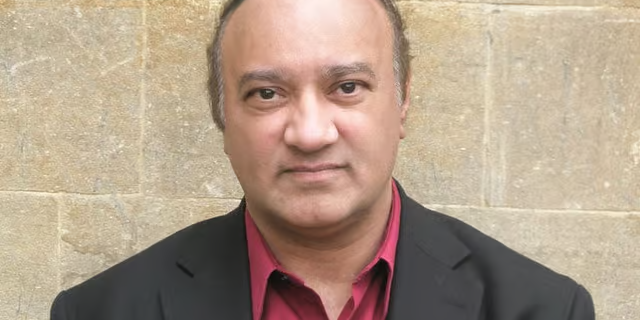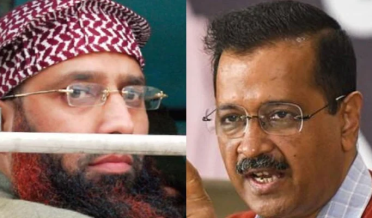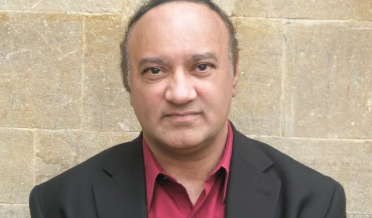B.A., M.A. (Cambridge), Ph.D. (Calgary, Alberta)
Ishtiaq Ahmed (Bradford )
Dr. Shabbir Akhtar’s sudden and unexpected death on Tuesday, 25th July came as a shock to his family and friends. His death at a relatively young age, 63 years, is truly a monumental loss for all concerned at the of height of his powers: British Muslims have lost a relentless ambassador and the intellectual community a man of exceptional prowess. For me personally, the loss is compounded by the loss of a truly dear friend and an intellectual inspiration. Together, over the years, we enjoyed many intellectual excursions. He always brought wit and humour even to the dimmest of circumstances.
Dr Shabir Akhtar, from a hardworking family in Bradford, went on to inspire many through his literary work bringing to fore the full force of his intellectual might.
Dr Atif Imtiaz, a close friend of Dr Shabbir Akhtar relates, “He was one of the brightest of his generation of British Muslims.”
Mohammed Ajeeb CBE, the former Lord Mayor of Bradford commented, “Bradford and British Muslims have lost a great ambassador”.
Nadim Qureshi, also a close friend who had known Shabbir from their time at Belle Vue Boys School said, “Whilst Bradford may mourn the loss of one of its brightest lights, I have lost a dear friend whom shared with me his more human side away from academia”
Yaqub Nizami, the author of ‘Pakistan to England’ said, “I had the privilege of being Dr Shabir’s work colleague. His intellect and sharp wit set him apart and above others in the team.”
Liaqat Hussain Naushahi of Jamiyiate Tabligh ul Islam and the former Secretary General and the President of Bradford Council for Mosques observes, “Dr Shabir was a person of faith who served it with passion through his writings, leaving a legacy that we can be proud of.”
Dr Shabir Akhtar was born in 1960 in rural Pakistan, arriving to U.K. aged 8 with his parents and siblings to settle in Bradford. he attended Belle Vue Boys Comprehensive School before going on to study philosophy at St Catherine’s College, Cambridge in 1980. He graduated with a first and was a student of the Catholic philosopher, Elisabeth Anscombe – one of the literary inheritors of Wittgenstein. After studying philosophy (BA and MA degrees) at Cambridge, he went to the University of Calgary, Alberta in Canada for his PhD in philosophy of religion, his thesis being “Religion in the Age of Reason: Faith and the Apostasy of Humanism.”
After his studies, Dr Shabir returned to Bradford and joined our team at the Bradford Racial Equality Council as the Racial Equality Officer (Education). For a short period, he also worked as community librarian at the Pakistani Community Centre as part of the team which included Yaqub Nizami. It was here he was introduced to the work of Bradford Council for Mosques where I had responsibility for the organisation’s media relations. He came to prominence in the infamous “Rushdie Affair “, becoming the intellectual voice of the Muslim community which culminated in him writing “Be Careful Muhammed: The Rushdie Affair” at my instigation. This landmark book was updated and reprinted in 2018 with a slightly tweaked title of “Be Careful with Muhammad! Salman Rushdie and the Battle for Free Speech.”
Throughout the Rushdie Affair, he was the most prominent voice of the British Muslim community, seen and heard frequently on television and radio, debating eloquently with the likes of Ian McEwan, Melvyn Bragg and Michael Ignatieff on issues raised by the whole ugly episode.
Dr Shabir Akhtar went on to write and publish a phenomenal range of books, articles and reviews covering a wide spectrum of subjects. However, his principal focus remained Islam in the modern world and the interface between Islam and Christianity in the modern secular society. He was an accomplished scholar of comparative religion, fluent in Arabic, Greek and Hebrew. He spent the last years of his life in Oxford where he taught at the university.
Along with his other intellectual pursuits, Dr Shabir was a brilliant poet. However, despite a number of published works, he did not see this as his principal calling. He often said, “poetry is something that comes naturally to me but which i have to keep under wraps for the fear of it taking over all the other things that i need to do “
A quick glance of his published work underlines what an intellectual giant he was. Some of his most outstanding published work included: The Final Imperative: An Islamic Theology of Liberation; A Faith for All Seasons: Islam and the Challenge of the Modern World; Islam as Political Religion: The Future of an Imperial Faith; The Quran and the Secular Mind: A Philosophy of Islam; Love in the Wrong Season: Collected Poems; Muslim Poetic Imagination; The Final Imperative: An Islamic Theology of Liberation; A Faith for All Seasons: Islam and the Challenge of the Modern World; The Light in the Enlightenment: Christianity and the Secular Heritage and Reason and the Radical Crisis of Faith and others. He also wrote extensively in journals. Dr Shabir’s work has been translated in France, Indonesia, Bosnia and Malaysia
But, perhaps, the true measure of the man is best judged by those closest to him. In a message to the friends of Dr Shabbir, his wife Fouziea wrote, “Shabbir was such a wonderful, loving, caring, supportive father, husband, scholar, poet, and friend who touched everyone’s heart and often put a smile on our face with his witty sense of humour, he will truly be missed.”
This for me sums up the man, his personality, his intellect and his endeavour. May Allah SWT bless his soul.







